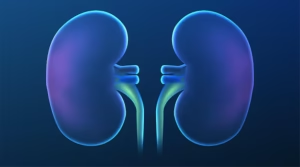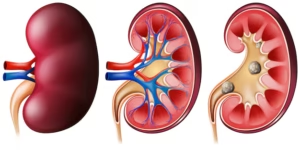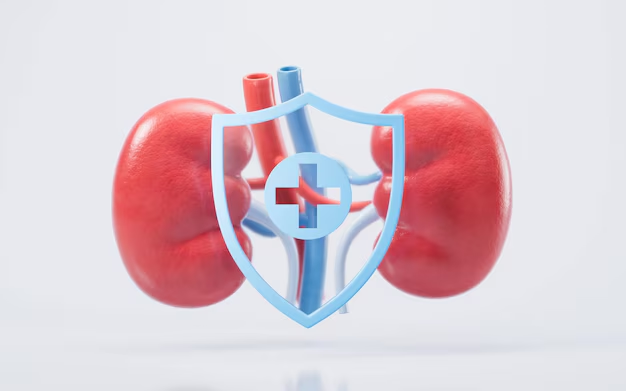Are you worried that diabetes might be harming your kidneys? It’s a valid concern. Diabetes and kidney disease are closely linked. Diabetes can lead to kidney disease. This is also known as diabetic nephropathy. Sedna Health is committed to giving you the information you need. Keep reading to learn about the risks and how to protect yourself.
This article will explain the connection. It will also outline the risks and ways to prevent kidney problems.
Understanding the Kidneys and Their Role

Kidneys are vital organs. They filter waste from your blood. They also regulate fluids and produce hormones. They keep your body in balance.
How Healthy Kidneys Function
Think of your kidneys as tiny filters. They have millions of small units called nephrons. Nephrons contain glomeruli. These filter waste and extra fluid. Clean blood then returns to your body. Waste goes to your bladder as urine.
Why Kidney Function is Crucial for Overall Health
Kidney problems can cause fluid buildup. This may lead to swollen ankles. They can cause electrolyte imbalances. Anemia can also develop Healthy kidneys are key for overall well-being.
The Diabetes-Kidney Connection: Diabetic Nephropathy

Diabetic nephropathy is kidney damage. It happens because of high blood sugar. Over time, this can harm the kidneys.
How High Blood Sugar Damages Kidneys
High blood sugar thickens the glomerular basement membrane. This is a key part of the kidney’s filter. It also causes protein to leak into the urine. This damages the kidneys over time.
Risk Factors for Diabetic Nephropathy
Some things raise the risk. Poor blood sugar control is a big one. High blood pressure makes it worse. Genetics can play a role too. Smoking also increases the risk.
Recognizing the Signs and Symptoms

Spotting kidney problems early is important. Early and late-stage symptoms exist. Knowing them can help you act fast.
Early Warning Signs of Kidney Problems in Diabetics
Watch for subtle clues. Extra protein in your urine is a sign. It is called microalbuminuria. Look for swelling in your ankles. Frequent urination, especially at night, could also be a sign.
Later-Stage Symptoms and Complications
Later on, other symptoms appear. Fatigue and loss of appetite may occur. Nausea is possible too. Severe cases can lead to kidney failure.
Prevention and Management Strategies

You can take steps to protect your kidneys. These tips can help prevent or slow damage.
Controlling Blood Sugar Levels
Keep blood sugar in check. Eat a balanced diet. Get regular exercise. Take your medicine as prescribed.
Managing Blood Pressure
High blood pressure hurts kidneys. Control your blood pressure. Change your lifestyle. Take meds if needed.
Regular Kidney Health Screenings
Get regular checkups. Urine and blood tests matter. They monitor kidney function. Your doctor will advise you.
Lifestyle Modifications and Dietary Changes
Change your lifestyle to help. Eat less salt and protein. Stay away from processed foods.
Treatment Options for Diabetic Nephropathy
Treatment focuses on slowing damage. It also manages symptoms.
Medications to Protect Kidney Function
Some drugs help. ACE inhibitors and ARBs protect kidneys. SGLT2 inhibitors can help too.
Dialysis and Kidney Transplantation
Dialysis is a life-saver. It cleans your blood when kidneys fail. A kidney transplant is a long-term option.
Conclusion
Diabetes can harm your kidneys. Protect yourself by managing blood sugar. Control blood pressure. Get regular screenings. Sedna Health is here to support you. Talk to your doctor for the best advice. For more info, visit the Sedna Health website.






